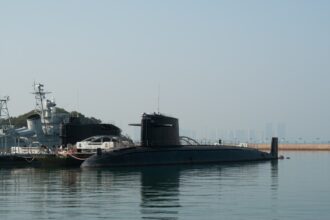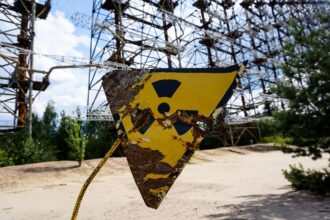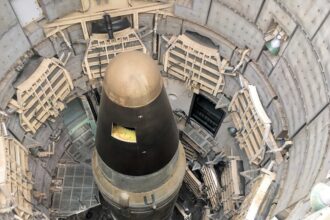Desert One, officially known as Operation Eagle Claw, was a pivotal moment in U.S. military history that unfolded in April 1980. The operation was conceived in response to the Iran hostage crisis, during which fifty-two American diplomats and citizens were held captive at the U.S.
Embassy in Tehran. The situation escalated tensions between the United States and Iran, prompting President Jimmy Carter to seek a military solution to rescue the hostages. The mission aimed to infiltrate Iran, rescue the hostages, and safely extract them back to the United States.
However, the operation faced numerous challenges from the outset, including logistical issues, intelligence failures, and operational miscalculations. The mission commenced on April 24, 1980, with a joint task force composed of elite military units, including Delta Force and Navy SEALs. Unfortunately, the operation was marred by a series of catastrophic events.
A sandstorm forced the aircraft to divert from their intended landing zones, and a collision between a transport plane and a helicopter resulted in the loss of several aircraft and personnel. Ultimately, the mission was aborted, leading to the deaths of eight servicemen and leaving the hostages still in captivity. Desert One not only highlighted the complexities of military operations but also underscored the limitations of U.S.
intelligence and planning capabilities at that time.
Key Takeaways
- Desert One was a failed rescue mission in 1980, which highlighted the limitations of traditional military operations in unconventional environments.
- Private Military Companies (PMCs) played a significant role in Desert One, providing specialized services and expertise that traditional military forces lacked.
- Desert One marked a turning point in the rise of PMCs, as governments began to recognize the value of outsourcing certain military functions to private contractors.
- The impact of Desert One on military strategy and operations was significant, leading to a reevaluation of the role of PMCs in future missions and operations.
- Since Desert One, PMCs have evolved to become more sophisticated and specialized, offering a wide range of services in modern warfare and counterterrorism operations.
The Role of Private Military Companies (PMCs) in Desert One
While Desert One was primarily a military operation conducted by U.S. armed forces, it also marked an early instance of private military companies (PMCs) playing a role in U.S. military endeavors. Although PMCs were not directly involved in the operation itself, their emergence as significant players in military operations can be traced back to this period. The failure of Desert One highlighted the need for specialized skills and capabilities that traditional military forces struggled to provide under certain circumstances. This realization paved the way for the increasing reliance on PMCs in subsequent military engagements. In the aftermath of Desert One, the U.S. government began to recognize the potential advantages of utilizing PMCs for various missions, including intelligence gathering, logistics support, and even direct combat roles. The operation’s shortcomings illustrated that conventional military forces might not always be the most effective solution for complex geopolitical crises. As a result, PMCs began to fill gaps in capabilities that were previously unaddressed by traditional military structures, leading to their gradual integration into U.S. military strategy.
The Influence of Desert One on the Rise of PMCs

Desert One served as a catalyst for the rise of PMCs in modern warfare. The operation’s failure underscored the necessity for flexible and adaptive responses to emerging threats, particularly in volatile regions like the Middle East. As the U.S. military sought to learn from its mistakes, it began to explore alternative approaches to conflict resolution that included outsourcing certain functions to private entities. This shift marked a significant turning point in how military operations were conceptualized and executed. The lessons learned from Desert One prompted military planners to consider how PMCs could enhance operational effectiveness. By leveraging the expertise of private contractors, the military could access specialized skills that were not readily available within its ranks. This trend gained momentum throughout the 1980s and 1990s, as conflicts around the world demonstrated the utility of PMCs in various roles, from training foreign militaries to providing security for critical infrastructure. The influence of Desert One on this evolution cannot be overstated; it laid the groundwork for a new paradigm in military operations that would continue to shape U.S. engagement strategies for decades.
The Impact of Desert One on Military Strategy and Operations
| Metrics | Data |
|---|---|
| Number of US military personnel involved | Over 100 |
| Number of US military casualties | 8 |
| Number of aircraft involved | 8 |
| Number of hostages rescued | 0 |
| Impact on US military strategy | Reevaluation of special operations tactics and coordination |
The ramifications of Desert One extended far beyond its immediate operational failures; it fundamentally altered U.S. military strategy and operational planning. The lessons learned from this ill-fated mission prompted a reevaluation of how military operations were conducted, particularly in terms of intelligence gathering, inter-agency coordination, and contingency planning.
Military leaders recognized that successful operations required not only robust planning but also adaptability in response to unforeseen challenges. In response to Desert One’s shortcomings, the U.S. military began to invest heavily in improving its special operations capabilities.
This included enhancing training programs for elite units like Delta Force and Navy SEALs, as well as developing more sophisticated intelligence-gathering techniques. Additionally, inter-agency collaboration became a focal point for future operations, as it became clear that effective communication between military and intelligence agencies was crucial for success. The impact of Desert One on military strategy was profound; it ushered in an era of increased emphasis on special operations and unconventional warfare that would define U.S.
military engagements in subsequent decades.
The Evolution of PMCs since Desert One
Since Desert One, PMCs have evolved significantly in terms of their roles and capabilities within military operations. Initially viewed with skepticism by some within the military establishment, PMCs gradually gained acceptance as their effectiveness became evident in various conflicts around the world. The Gulf War in 1991 marked a turning point for PMCs, as they played crucial roles in logistics support, security services, and even combat operations alongside conventional forces.
As conflicts continued into the 21st century, particularly with the wars in Iraq and Afghanistan, PMCs became increasingly integrated into U.S. military operations. Companies like Blackwater (now known as Academi) and DynCorp emerged as prominent players, providing a range of services from security detail for diplomats to training local forces.
This evolution reflected a broader trend toward privatization within defense sectors globally, as governments sought cost-effective solutions to complex security challenges.
The Legal and Ethical Considerations of PMCs in the Aftermath of Desert One

The rise of PMCs following Desert One brought with it a host of legal and ethical considerations that continue to be debated today. The use of private contractors in military operations raises questions about accountability and oversight, particularly when these entities operate in conflict zones where traditional legal frameworks may be inadequate or nonexistent. The lack of clear regulations governing PMC activities has led to instances of misconduct and human rights violations, prompting calls for greater transparency and accountability.
Moreover, the ethical implications of outsourcing military functions to private companies have sparked intense discussions among policymakers and scholars alike. Critics argue that relying on PMCs can undermine national sovereignty and dilute accountability for actions taken during military operations. In contrast, proponents contend that PMCs can provide essential capabilities that enhance operational effectiveness while allowing governments to maintain plausible deniability in sensitive situations.
As the landscape of modern warfare continues to evolve, addressing these legal and ethical challenges remains paramount for ensuring responsible use of PMCs.
The Relationship between PMCs and Government Agencies post-Desert One
The relationship between PMCs and government agencies has undergone significant transformation since Desert One. Initially characterized by skepticism and caution, this relationship has evolved into one marked by collaboration and interdependence. As military operations became increasingly complex and multifaceted, government agencies recognized the value that PMCs could bring to various missions.
In many cases, PMCs have been contracted to perform tasks traditionally reserved for government personnel, such as security services or logistical support. This shift has allowed government agencies to focus on core functions while leveraging the specialized expertise offered by private contractors. However, this evolving relationship has also raised concerns about accountability and oversight, particularly when private entities operate alongside government forces in conflict zones.
The Role of PMCs in Modern Warfare and Counterterrorism Operations
In contemporary warfare and counterterrorism operations, PMCs have assumed increasingly prominent roles that reflect their evolving capabilities and expertise. Their involvement spans a wide range of activities, including intelligence gathering, training local forces, providing security for critical infrastructure, and even direct combat support in certain situations. This versatility has made PMCs valuable assets for governments seeking to address complex security challenges without committing large numbers of conventional troops.
The rise of non-state actors and asymmetric warfare has further underscored the importance of PMCs in modern conflict scenarios. As traditional state-centric approaches become less effective against decentralized threats like terrorism or insurgency, governments have turned to PMCs as flexible solutions capable of adapting quickly to changing circumstances on the ground.
The Challenges and Controversies Surrounding PMCs in the Wake of Desert One
Despite their growing prominence, PMCs have faced numerous challenges and controversies since their rise following Desert One. High-profile incidents involving PMC personnel have raised questions about accountability and oversight within these organizations. Cases such as the Blackwater shootings in Baghdad highlighted concerns over excessive use of force by private contractors operating without adequate regulation or oversight.
This opacity can erode public trust and complicate efforts to hold individuals accountable for misconduct or violations of international law. As governments continue to grapple with these challenges, finding effective mechanisms for regulating PMC activities while ensuring operational effectiveness remains a pressing concern.
The Future of PMCs in the Context of Desert One
Looking ahead, the future of PMCs will likely be shaped by ongoing developments in global security dynamics and evolving military strategies. As conflicts become more complex and multifaceted, governments may increasingly turn to private contractors as flexible solutions capable of addressing emerging threats effectively. However, this trend will also necessitate careful consideration of legal frameworks governing PMC activities to ensure accountability and oversight.
Moreover, advancements in technology will likely play a significant role in shaping PMC operations moving forward. As warfare becomes increasingly reliant on cyber capabilities and unmanned systems, PMCs may adapt their services accordingly to meet new demands within this evolving landscape. Balancing innovation with ethical considerations will be crucial for ensuring responsible use of PMCs in future conflicts.
Lessons Learned from Desert One and the Role of PMCs in Shaping Military and Security Policies
The lessons learned from Desert One continue to resonate within military circles today as policymakers seek to navigate an increasingly complex security environment characterized by rapid change and uncertainty. The operation’s failures underscored the importance of thorough planning, inter-agency collaboration, and adaptability—principles that remain relevant for contemporary military operations. As PMCs have become integral components of modern warfare strategies since Desert One, their role will likely continue to evolve alongside changing geopolitical dynamics.
Ensuring that these private entities operate within clear legal frameworks while maintaining accountability will be essential for shaping future military policies effectively. Ultimately, Desert One serves as both a cautionary tale and a catalyst for change—reminding policymakers of the complexities inherent in modern conflict while highlighting opportunities for innovation through collaboration with private entities.
In exploring the intricate connections between the Desert One operation and the rise of Private Military Companies (PMCs), it’s essential to consider the broader implications of military privatization. An insightful article that delves into this topic can be found on the War Room’s website. This piece provides a comprehensive analysis of how historical military operations have influenced the modern landscape of PMCs. For a deeper understanding, you can read the full article by visiting this link.
WATCH THIS! From Tehran to Blackwater: The Real Story
FAQs
What is the link between Desert One and PMCs?
The link between Desert One and PMCs refers to the use of private military contractors (PMCs) in the aftermath of the failed rescue mission at Desert One during the Iran hostage crisis in 1980.
What is Desert One?
Desert One refers to a remote desert location in Iran where a US military rescue mission, known as Operation Eagle Claw, was attempted to rescue American hostages held in Tehran in 1980. The mission ultimately failed, resulting in the deaths of eight American servicemen.
What are PMCs?
Private military contractors (PMCs) are private companies that provide military and security services to governments, corporations, and other organizations. These services can include combat operations, logistics, training, and security.
How are PMCs linked to Desert One?
Following the failure of the Desert One rescue mission, the US government began to reassess its military capabilities and explore the use of private military contractors to supplement and support traditional military operations.
What role did PMCs play in the aftermath of Desert One?
In the aftermath of Desert One, the US government increasingly turned to PMCs to provide specialized military and security services, particularly in areas where traditional military forces faced limitations or challenges.
What impact did the link between Desert One and PMCs have on military operations?
The link between Desert One and PMCs contributed to the growth and expansion of the private military contracting industry, leading to increased reliance on PMCs for a wide range of military and security functions. This shift has raised ethical, legal, and operational questions about the use of PMCs in modern conflicts.




